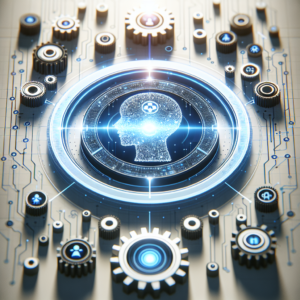What does the future of healthcare look like to you? In recent years, our world has experienced an unprecedented shift towards digitalization, which has significantly impacted various sectors, including healthcare. It’s fascinating how technology has become woven into the very fabric of our everyday lives, transforming how we interact with our health. As I ponder the changes happening around us, I realize that we are on the brink of a new era in smart healthcare.
Understanding Smart Healthcare
Smart healthcare is not merely a trend; it’s a vital evolution that enhances the ability to provide effective medical services through advanced technologies. At its core, smart healthcare utilizes sophisticated tools, devices, and systems to improve patient outcomes while making the healthcare experience more efficient. It integrates artificial intelligence (AI), the Internet of Things (IoT), big data, and mobile health (mHealth) into everyday health practices.
One of the most striking features of smart healthcare is its emphasis on patient-centered care. No longer do I feel like I’m just a number in a waiting room; instead, I’m a part of an interconnected ecosystem that values my health and well-being.
The Role of Technology in Healthcare
Technology is the backbone of smart healthcare, providing the infrastructure needed to connect patients, providers, and data. Innovations like wearable devices, telemedicine, and electronic health records (EHRs) are just a few examples of how technology enhances my healthcare experience.
Wearable Devices
Wearable technology, such as fitness trackers and smartwatches, empowers me to take charge of my health. These devices monitor vital signs, activity levels, and even sleep patterns. I find comfort in knowing that I have real-time data at my fingertips, prompting me to make healthier lifestyle choices.
| Type of Wearable | Features | Benefits |
|---|---|---|
| Fitness Trackers | Steps, heart rate, calories burned | Encourages physical activity |
| Smartwatches | Notifications, health metrics, GPS tracking | Keeps me connected and informed |
| Health Monitors | Blood pressure, glucose levels | Provides insights into chronic conditions |
Telemedicine
Telemedicine has revolutionized how I access healthcare services. Instead of traveling to a clinic, I can consult with my doctor virtually, saving me time and making healthcare more accessible. Whether it’s a follow-up appointment or a quick consultation, telemedicine ensures that I receive the care I need without unnecessary delays.
Big Data in Healthcare
Big data is a term that seems intimidating, but it simply refers to the vast amounts of information generated in the healthcare industry. With smart healthcare, this data can be analyzed to extract valuable insights that improve treatment protocols, enhance patient outcomes, and streamline operations.
When I think about it, the use of big data means my healthcare providers can make better decisions tailored to my specific needs. For instance, predictive analytics can help identify potential health risks before they become critical, allowing for preventative measures that can save lives.
Interconnected Health Systems
A significant advantage of smart healthcare is the interoperability of health systems. It means that my medical records can be accessed across different healthcare platforms, ensuring continuity of care. No longer am I burdened with repeating my medical history to multiple providers. Everything I need to know is seamlessly integrated into one comprehensive system.
Electronic Health Records (EHRs)
EHRs play a crucial role in the interconnected landscape of smart healthcare. These digital versions of my paper charts serve as a centralized repository of my medical history, medications, allergies, and more. It provides a complete picture of my health, accessible to any healthcare professional involved in my care.
| Feature | Benefits |
|---|---|
| Accessibility | Easy access for healthcare providers across systems |
| Accuracy | Reduces errors associated with paper records |
| Efficiency | Streamlines administrative processes |
Personal Health Apps
Personal health apps are part of this interconnected system, allowing me to actively engage with my health. These apps help me track medications, schedule appointments, and even manage chronic conditions. The convenience they provide means I am more accountable for my health, which is empowering.
Remote Patient Monitoring
Remote patient monitoring (RPM) is a game changer for managing chronic diseases and facilitating post-discharge care. It utilizes technology to monitor patients’ health data outside of traditional clinical settings. This means I can be monitored in the comfort of my home, reducing unnecessary hospital visits while receiving high-quality care.
Benefits of RPM
The benefits of RPM are substantial. It offers continuous monitoring of conditions like diabetes, hypertension, and heart disease, enabling proactive interventions when needed. Here’s why I think it’s vital:
| Benefit | Explanation |
|---|---|
| Improved Outcomes | Early detection of potential health issues |
| Patient Engagement | Encourages proactive health management |
| Cost Efficiency | Reduces the need for hospital re-admissions |
AI and Machine Learning in Healthcare
Artificial Intelligence (AI) and machine learning are at the forefront of smart healthcare innovations. They can analyze vast datasets, identify patterns, and even assist in diagnosing diseases more effectively than ever before. It’s incredible to think how algorithms can augment the capabilities of healthcare professionals.
Enhancing Diagnostic Processes
AI tools are becoming indispensable in diagnosing conditions. They can analyze medical imaging, lab results, and other diagnostic tests, offering insights that may not be immediately obvious to a human eye. As a patient, I feel more confident knowing that my diagnosis is backed by advanced technologies.
| Application | Examples of AI Use |
|---|---|
| Imaging Analysis | Detecting tumors in radiology scans |
| Predictive Analytics | Forecasting disease outbreaks |
| Risk Stratification | Identifying high-risk patients |
Smart Hospitals
The concept of smart hospitals brings these advancements together under one roof. These facilities leverage smart technologies to enhance patient care, streamline operations, and improve efficiency. It’s exciting to imagine what a visit to a smart hospital might look like in the future.
Components of a Smart Hospital
Smart hospitals integrate various technologies to facilitate a seamless experience. Here are some key components that make them stand out:
- Internet of Medical Things (IoMT): This encompasses connected devices that collect and transmit health data, aiding in real-time monitoring and decision-making.
- Robotics: Robots can assist with surgical procedures, transportation of supplies, and even patient care, helping to reduce the workload on healthcare staff.
- Telehealth Services: By providing remote consultations and follow-ups, smart hospitals ensure that care extends beyond physical boundaries.
Challenges Facing Smart Healthcare
Despite the benefits, the road to comprehensive smart healthcare is not without its challenges. Issues such as data privacy, interoperability, and the digital divide must be addressed to ensure that all patients can benefit from these innovations.
Data Privacy Concerns
With the increasing amount of personal health data being shared and stored online, I often wonder about the security measures in place to protect my information. Ensuring data privacy and security is paramount, and healthcare providers must invest in robust systems to safeguard against breaches.
Interoperability Hurdles
Interoperability, while a significant advantage of smart healthcare, is also a challenge. Many systems still operate in silos, making it difficult to share information across platforms. I hope that future developments focus on creating standards that promote seamless information exchange.
Digital Divide
Lastly, the digital divide remains a concern. Not everyone has equal access to technology or the internet, which can lead to disparities in healthcare access. It’s essential to consider how to bridge these gaps to ensure that advancements in smart healthcare benefit individuals from all walks of life.
The Future of Smart Healthcare
As I look ahead, I’m excited about the potential that smart healthcare holds. Integrating technology into healthcare can improve outcomes and create a more personalized experience. I envision a future where my health management is not only efficient but also deeply engaging.
The Role of Artificial Intelligence
AI and machine learning will continue to shape the landscape of smart healthcare. By making healthcare more precise and personalized, these technologies can enhance decision-making and patient outcomes.
Increased Patient Involvement
I can see a shift where patients take an active role in managing their health. With access to real-time data and personalized health insights, I might become more involved in my treatment decisions. After all, who knows my body better than I do?
Continued Innovation
The healthcare sector is a continuous state of evolution. As innovations emerge, they will create new avenues for improving care delivery. It’s thrilling to think about the possibilities that lie ahead—perhaps advancements in gene therapy, advanced robotics, and even more sophisticated health tracking devices.
Conclusion
In conclusion, as someone navigating the healthcare system, I recognize the significance of smart healthcare in revolutionizing how I perceive and receive medical care. The integration of technology, patient involvement, and data-driven decisions marks a pivotal moment in medical history. By embracing these changes, we are ushering in a connected future where healthcare becomes more accessible, effective, and patient-centered.
I believe that being part of this transformation is enriching. Each tool, technology, and system leads us closer to a future where everyone receives the care they deserve. With determination and innovation, I’m confident that smart healthcare will make waves in revolutionizing the world of wellness for generations to come.






